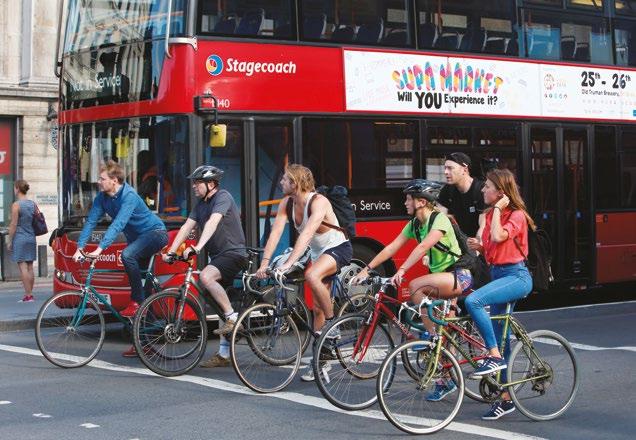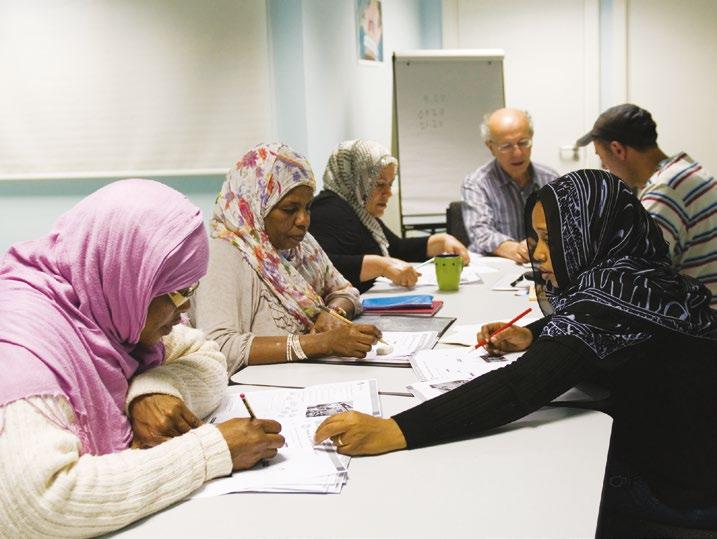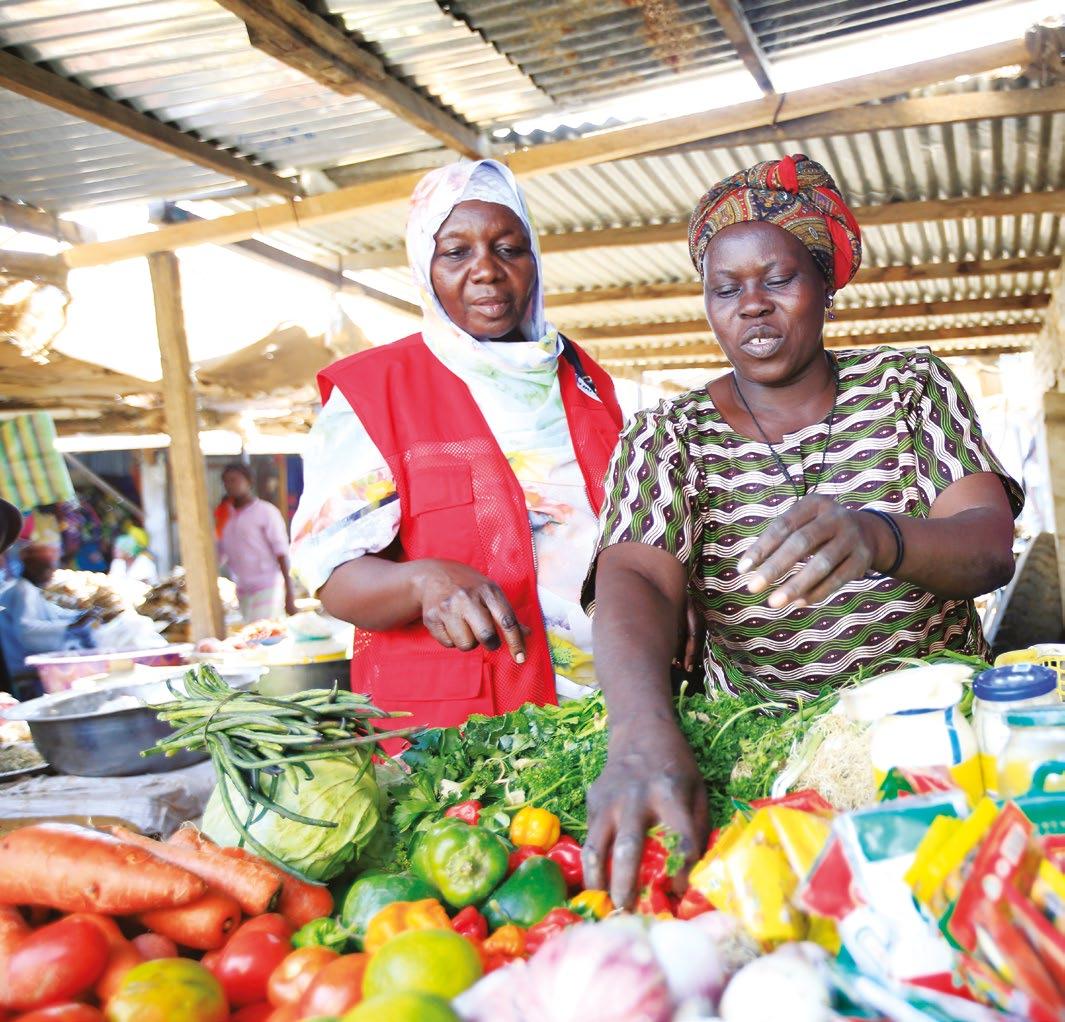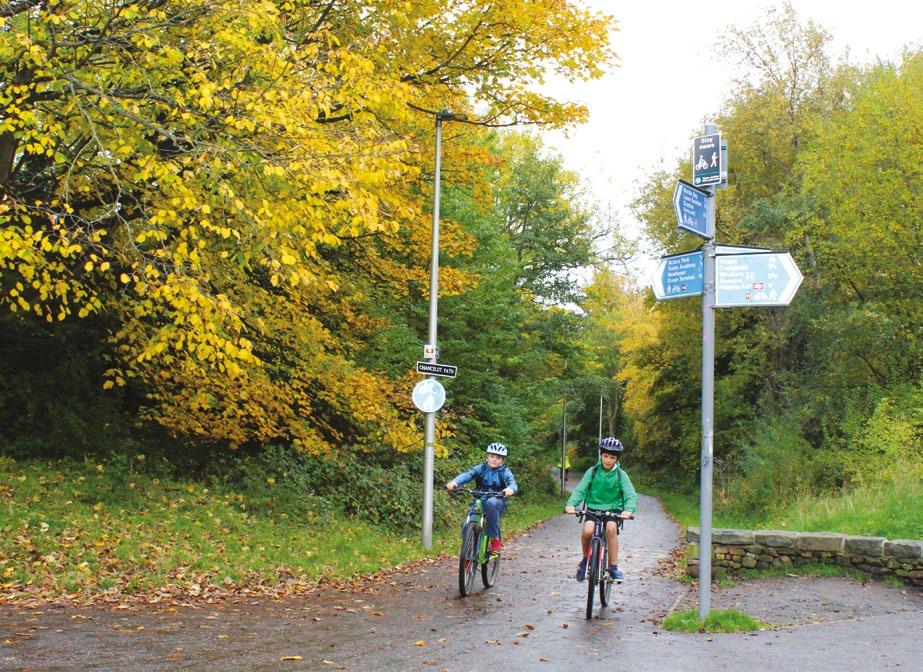
5 minute read
Three crises, one solution
from Giving Magazine 2020
by cityam
John Sauven, Executive Director of Greenpeace UK, explains why 2021 must be a turning point for the economy as well as the environment.
THE Covid-19 crisis has created challenges to our daily lives, communities and the global economy on a scale that was unimaginable only a year ago. And government shutdowns in parts of the world’s major economies have also sparked a global recession that will require a response that is both sustainable and equitable.
Alongside the health emergency, the climate and nature emergencies have not gone away. Indeed, they’re getting worse. The current path towards at least three degrees Celsius of global heating threatens millions – if not billions – of people’s lives, homes, jobs and communities. It is a threat the world cannot afford to ignore as work begins to reconstruct the global economy and repair the damage caused by Covid-19. After all, the climate and nature crisis threatens to cause more disruption and last longer than the current pandemic.
To stand the best chance of averting the devastating impacts of the health, nature and climate catastrophe, the UK government must put at the top of its agenda creating green jobs, attracting private green investment and an economy-wide green recovery package.
This work must be compatible with delivering net-zero greenhouse gas emissions well before 2050. In the words of the UN Secretary General, we need to “recover better”.
In practice, if done sustainably, there should be little conflict between the economy and the environment. As a recent study by the Smith School of Enterprise and the Environment at the University of Oxford said: “There is strong evidence that green stimulus policies are economically advantageous when compared with traditional fiscal stimuli.”
And done right, many of the green investments and policy levers that will be key to tackling the climate and nature emergencies will also help to level up communities across the UK. Now is the time to stimulate local economies and improve public health and wellbeing.
Better-insulated homes will be warmer and cut energy bills, as well as reducing emissions.
Improved public transport and zero emission vehicles will decrease the cost of air pollution on the NHS and help save lives.
Better urban design, including zero carbon homes and increased investment in broadband, will help meet climate targets and minimise commuting time.
A sustainable food and farming system will improve people’s diets, boosting physical and mental health as well as protecting biodiversity.
Research shows policies like these are likely to receive widespread public support. A large
majority of UK adults believe the climate crisis is as serious as the Covid-19 crisis. And these views are held more widely than conventional political wisdom suggests.
As a member of the G7 and host of COP26, the next global climate change conference to be held in Glasgow in November next year, the UK has a unique opportunity. It can help lead the world in the green recovery and demonstrate how climate-proofed infrastructure and high environmental standards can lead to greater happiness and wellbeing for all.
The UK has a once-in-a-generation chance to lay out and champion on the world stage a vision for new and innovative forms of international cooperation and funding to ensure that the path out of the Covid-19, nature and climate crises is sustainable and equitable.
The Climate Coalition’s Green Recovery Plan is backed by over 60 climate and development groups, including ourselves. It provides a valuable roadmap for the UK government and the devolved administrations in Edinburgh, Cardiff and Belfast, which also have an important role to play.
Building on our world-leading offshore wind industry, our legal commitment to net-zero emissions and our successful coal phase-out, an ambitious green recovery programme can inspire and pioneer a modern revolution that changes the way the world works for the benefit of all. It would put Global Britain – Britain as a force for good in the world – firmly into practice. ■
greenpeace.org.uk
ROADMAP FOR A GREEN RECOVERY
The Climate Coalition’s Green Recovery Plan, sent to the Prime Minister in mid-June, challenges the UK government to drive a “green, fair and healthy recovery” and to “level up” – create a more equitable society while speeding up the transition to net-zero emissions. Its seven recommendations are:


1. Adopt a sustainable economic recovery plan for UK that promotes climate resilient investments and growth in green jobs. Prioritise energy-efficient homes, buildings and infrastructure; boost electric vehicle and clean transport use; speed up the development of a zero carbon power network and unleash local action.
2.
3.
4.
5. Accelerate private sector investment in the net-zero transition by setting up a Climate Infrastructure Bank, increasing financial powers for local authorities and developing a Climate Finance Plan.
Adopt the net-zero rule to lay the policy foundation for a sustainable recovery plan, ensuring the economy, public spending and taxation get us on track to netzero. All business bailouts should be conditional on a commitment to do the same.
Protect and restore UK ecosystems and nature-rich green space. Invest in a transition to land use and farming that benefits nature, climate and human health by protecting and restoring natural ecosystems, on land and at sea. Future UK trade deals must support this transition.
Align all UK public spending with a just energy transition. Support a more sustainable economic recovery in developing countries by ending all public funding – both aid and export finance – for fossil fuels and helping developing countries to move to sustainable renewable energy instead, with energy access for all.
6.
7. Support the most vulnerable, including the world’s poorest. Build a resilient and inclusive global recovery by strengthening international support for the most vulnerable countries and communities worldwide.
Protect and restore global ecosystems. The UK should lead the charge to halt and rapidly reverse the global decline of biodiversity, so that future generations may produce food, have enough water, remain healthy, and thrive.
More information at theclimatecoalition.org/recoveryplan









